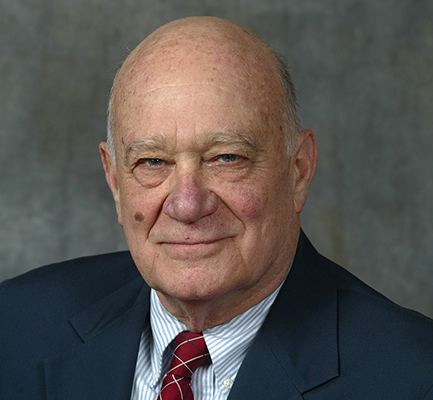
Dear reader pals: If you have the time and inclination I hope you will continue with me on Long Islander Walt Whitman’s “Song of the Open Road” to explore happiness.
In his brilliant book, “Homo Deus,” Yuval Noah Harari joins Whitman and other key analysts in contending that happiness is the major purpose of life.
Of course, complex matters need to be explored. How does one achieve happiness? Does the accomplishment rest mostly on personal responsibility or are there a host of other social, structural and relationship factors involved?
How great are the variations among folks concerning how they regard happiness as well as gauging its effects on their lives and relationships? If you think of the memorable line from the film “Casablanca,” you may be “shocked, shocked” to learn that a recent international survey of Global Happiness ranked American people only 18th in the world?
Has the United States improved since 2018 when it was rated among “the most stressful in the world” – 58% of citizens were stressed compared to Uganda, 53%; Costa Rica, 53%; and Rwanda; 52%)
Why are 17 nations doing better? With its vast resources and distinctive history, why doesn’t the United States have a higher rating? Why are Switzerland, Denmark, the Netherlands and Finland rated as having the best quality of life? Why has Canada been rated the top country in the world for four years in a row?
What are the polling techniques for taking stock of millions of individuals for happiness within any particular nation? Leading analysts are Gallup and the United Nations Sustainable Development Solutions Network.
As mentioned in my initial column, Jefferson’s celebration of the “pursuit” (“practice” of happiness) has an economic security component. Well before Abraham Maslow developed his “hierarchy of needs,” Jefferson and others argued that folks needed economic security, to foster freedom, individualism and democracy.
Jefferson also had confidence in the essential “benevolence” of individuals; they would strive to better themselves and their communities with virtuous lives that included others. Benjamin Franklin expanded on these views establishing the Philadelphia club “Juntos” when he was only in his 20s.
Consider what Franklin’s regular community gatherings conveyed, beginning in the 1720s. As a deeply caring people person (also a master of epistolary friendships – discussions later!), Franklin recognized that if folks met together regularly, they could become better known to each other. They could share their achievements (building intimacy bonds) and also indicate where they needed assistance and find ways in which cooperative endeavors could enhance their shared community.
I will have much more to say later about comparing happiness levels in various nations, but in each of these “Whitmaneque” essays I will spend some time on the journeys of individuals. Certainly, what Benjamin Franklin organized during the 1720s is still relevant today (perhaps more relevant than other approaches).
In our times when there is much talk of “loneliness (“intimacy”) anorexia,” Franklin’s sustained “community conversations” offered building blocks similar to what Abraham Marlow advocated in his theory of “hierarchy of needs” that build a support system from which individuals could feel confidence and support for “self-actualization” and “peak experiences.”
We need to consider how individuals today are motivated and energized to link Franklin/Maslow approaches in the pursuit (“practice”) of happiness (taught at home, in schools, by community groups?)
That still leaves questions about what happiness means to folks in their daily lives. Writers like Yuval Noah Harari contend that most intense happiness is often associated with physical pleasure, particularly sexual pleasure. How do we evaluate that in light of the many ways that folks cherish happiness in careers, communities and relationships?
How many folks will cultivate “mindfulness” so they establish paths to happiness and the kinds of satisfactions they consider particularly satisfying and rewarding?
This past week Lester Wolff died at age 102. I saw him frequently at gatherings in Rabbi Robert Widom’s social library at Great Neck’s Temple Emanuel. For years, Lester had been the longest surviving former member of Congress. It was a great pleasure to know Lester for 40 years and to have his assistance when I ran for Congress in 1984.
In many respects, Lester reminded me of a 19th century North Shore writer, William Cullen Bryant, about whom it was said: “He had the wisdom of age in his youth, and the fire of youth in his age.”
Like Bryant Lester Wolff achieved happiness by following the principles of genius outlined by Leonardo Da Vinci (something we discussed often). Da Vinci listed 10 qualities of genius all spelled in Italian.
The significant first one was easy to translate: “CURIOSITA” – one might ask if anyone could achieve happiness without an ongoing sense of inquiry, quests for knowledge and understanding.
At one point Lester did TV Q-and-A programs with citizens where he interacted on current events of the day. But as recently as months ago, a group of folks clustered around Lester for a chat in the rabbi’s library. Lester and I were the only ones leaning on canes as the cluster chatted. I urged Lester to sit down with me while younger folks could remain standing if they wished.
I was always struck by Lester’s appreciation of another of Da Vinci’s qualities of genius: “SFUMATO. In Italian this was an expression that literally meant “going up in smoke.” Idiomatically, it meant the ability to deal with “ambiguity.”
Lester Wolff incorporated this into his philosophy and paths to happiness, articularly with his bizarre election loss in 1982.
Those of us who cherished seeing Lester Wolff at Temple Emanuel will dearly miss the many ways he exemplified happiness for all of us. Still to come: Atlantic Monthly project “What Makes Us Happy,” and Kettering alums “Zoomer” analyses of changing dimensions of happiness.







i need links to the april articles re happiness.
thanks